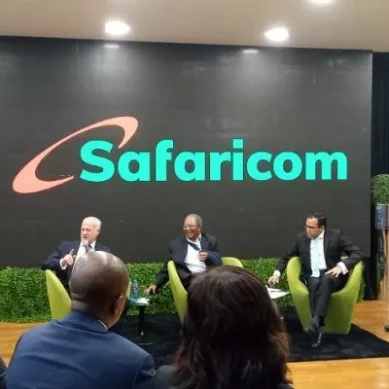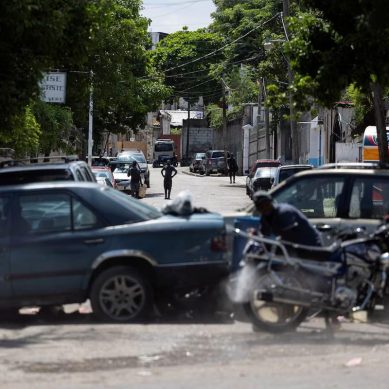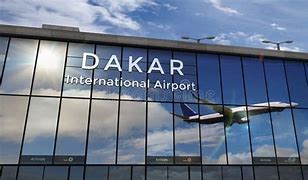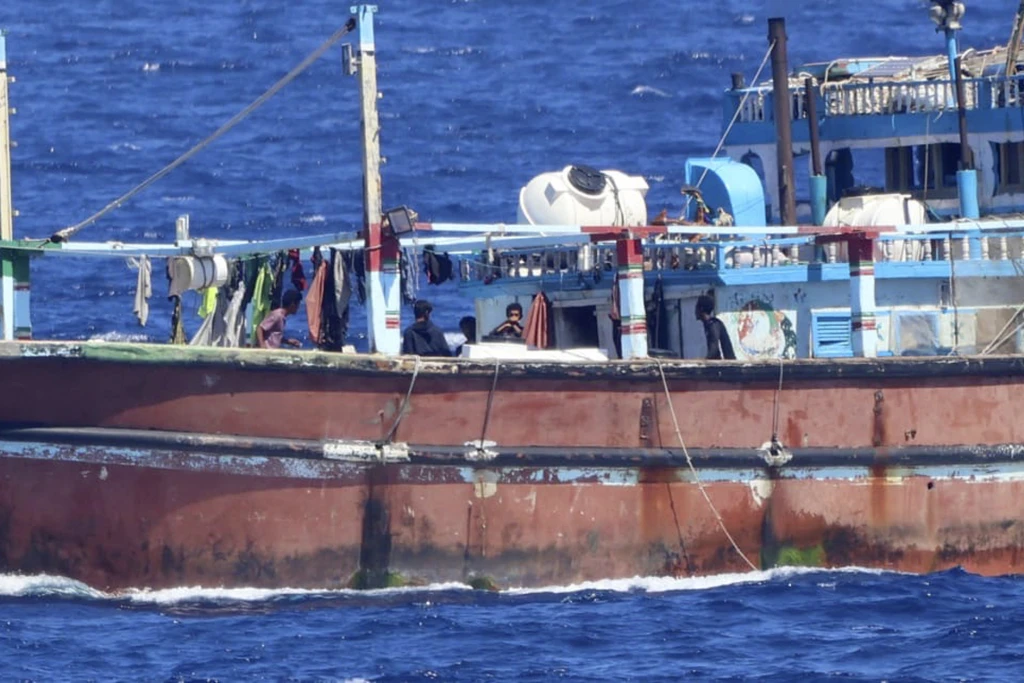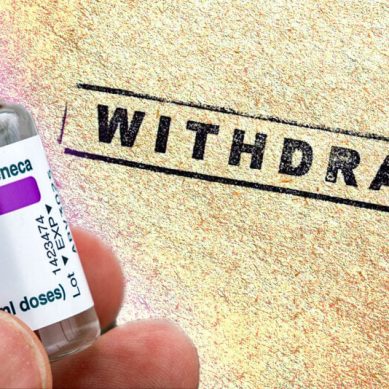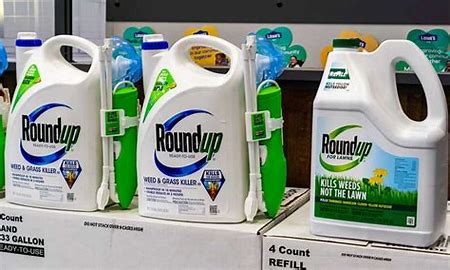
The Defender’s Big Pharma Watch delivers the latest headlines related to pharmaceutical companies and their products, including vaccines, drugs and medical devices and treatments. The views expressed in the below excerpts from other news sources do not necessarily reflect the views of The Defender.
The Washington Post reported:
A jury handed down a $2.25 billion verdict, including $2 billion in punitive damages, against agrochemical giant Monsanto, according to the lawyers of a man who said he developed cancer from using the company’s weed killer, Roundup.
John McKivison, 49, filed a lawsuit in Philadelphia against the company after he was diagnosed with non-Hodgkin’s lymphoma, which he said was due to using Roundup on his property for 20 years.
On Friday a jury returned a unanimous verdict, finding that Roundup was a cancer-causing product, that Monsanto was negligent and that Monsanto failed to warn about the dangers of Roundup, McKivison’s lawyers Tom Kline and Jason Itkin said in a joint statement.
In an emailed statement, Bayer, Monsanto’s parent company, said it planned to appeal the verdict and what it called the “unconstitutionally excessive” damages. It said the jury’s verdict “conflicts with the overwhelming weight of scientific evidence and worldwide regulatory and scientific assessments” on Roundup.
The claims rest on the ingredient glyphosate, introduced as a herbicide by Monsanto in 1974, which inhibits a certain enzyme in most plants, preventing them from growing. Monsanto also introduced genetically modified crops that are resistant to glyphosate. The German pharmaceutical giant Bayer acquired US agrochemical company Monsanto, the inventor and producer of Roundup, in 2018.
Pittsburgh Post-Gazette reported:
It happens every year around this time: The Centres for Disease Control and Prevention releases the new year’s immunisation schedules, which describe when and how vaccines should be given. Maybe it’s routine enough to elicit nothing more than a shoulder shrug from some, but in an era described by the World Health Organization and the United Nations International Children’s Emergency Fund as “the largest continued backslide in vaccination in three decades,” little is routine about new vaccine information, especially when it comes to kids.
First, the 20-valent pneumococcal conjugate vaccine, which can – but doesn’t have to – replace the 15-valent version given to little ones four times between birth and 15 months of age. This vaccine fights 20 Streptococcus pneumoniae strains, known to cause anything from meningitis to sepsis to pneumonia.
Next up, the mpox (formerly “monkeypox”) vaccine. After the 2022 outbreak – which caused nearly 93,000 infections and 170 deaths, to date – the Food and Drug Administration approved the mpox vaccine for emergency use in August of that year for those 18 years and older who are at high risk.
The next inclusion is one of the two new RSV preventers, but maybe not the one you’d guess. After “unprecedented demand,” as described by co-producer Sanofi, for the monoclonal antibody meant for children ages eight months and younger, and an associated shortage, the only RSV vaccine noted on the 2024 immunisation schedule is the version now offered to women during weeks 32 through 36 of pregnancy.
Last is an updated meningitis vaccine that covers five serogroups (instead of four) and is dosed identically: ages 11 or 12 and again at 16.
The Guardian reported:
When Dr Art Van Zee finally understood the scale of the disaster looming over his corner of rural Virginia, he naively imagined the drug industry would be just as alarmed.
So the longest serving doctor in the struggling former mining town of St Charles set out in the early 2000s to tell pharmaceutical executives, federal regulators, Congress and anyone else who would listen that the arrival of a powerful new opioid painkiller was destroying lives and families, and laying the ground for a much bigger catastrophe.
Two decades later, as Van Zee surveys the devastation caused by OxyContin and the epidemic of opioid addiction it unleashed, he is still in disbelief at the callous indifference to suffering as one opportunity after another was missed to stop what has become the worst drug epidemic in US history.
But the 76-year-old doctor is also shocked that the crisis has got so much worse than even he imagined as one fresh wave of narcotics after another dragged in new generations and drove the death toll ever higher.
As it turned out, the drug industry was alarmed by Van Zee’s warnings, but not in the way he expected. It saw the doctor as a threat to profits and so from the very beginning, big pharma responded by working to discredit Van Zee and others like him who rang the alarm on high-strength opioids creating mass addiction.
KFF Health News reported:
An executive at Teva Pharmaceuticals flagged Publix Super Markets in October 2015 after detecting what he called in an email “serious red flags” with the grocery chain’s orders of powerful opioids.
The share of high-strength oxycodone orders was well above normal for a chain of grocery store pharmacies, and the total number of pills sent to Publix stores was “significantly above their peers,” Teva’s head of federal compliance wrote in the email to his supervisors, according to court records in a federal lawsuit pending in Ohio against Publix and other companies.
The volume of prescription opioids dispensed in Florida fell 56 per cent from 2011 to 2019 as the pharmaceutical industry was hit by lawsuits for its role in the national opioid crisis, according to a Tampa Bay Times analysis of Drug Enforcement Administration data recently released by a federal court. But while national pharmacy chains like CVS and Walgreens were dispensing fewer of the highly addictive drugs, Publix’s sales were soaring.
CNBC reported:
Big pharmaceutical companies such as Bristol Myers Squibb, Merck and Johnson & Johnson face a looming threat that will put tens of billions of dollars in sales at risk between now and 2030, as blockbuster drugs will tumble off a so-called patent cliff.
That refers to when a company’s patents for one or more leading branded products expire, which opens the door for competitors to sell copycats of those drugs, often at a lower price. That typically causes revenue to fall for drugmakers and costs to drop for patients, who can access more affordable options.
Certain drugmakers appear well prepared to offset some losses from upcoming patent cliffs, as they build their drug pipelines and ink acquisitions or partnerships with other companies, some Wall Street analysts said.
The top 20 biopharma companies have $180 billion in sales at risk from patent expirations between now and 2028, according to estimates from EY.
Fortune reported:
Can Big Pharma produce the medicines and treatments America needs without the long-tailed macaque? It’s not a rhetorical question. The go-to lab monkey for the $586 billion biopharmaceutical industry and many areas of research is at the centre of the complicated international trade drama that industry groups say threatens to clog the nation’s vital drug development pipeline.
The whole mess leaves the industry, which relies on the animal for required safety and efficacy testing, in a real jam – and scrambling to find solutions to this debacle, from resuming Cambodian imports to increasing domestic breeding.
But are more macaques really the answer? The whole affair has brought unwelcome attention to an unpleasant, inescapable truth hidden within the triumphant narrative of scientific progress: that our success in curing and treating all kinds of human diseases and conditions depends on this precarious trade – and on sacrificing the thousands of monkeys that travel through it.
Inflicting harm and death upon animals for the sake of science is a practice that more than half, 52 per cent, of Americans oppose, according to a 2018 survey by Pew Research Centre.
ABC News reported:
The Centres for Disease Control and Prevention (CDC) is warning clinicians to remain on alert for measles cases due to a growing number of infections.
Between December 1, 2023 and January 23, 2024, there have been 23 confirmed cases of measles including seven cases from international travellers and two outbreaks with five or more infections each, according to an email sent this week.
Cases have been reported in Pennsylvania, New Jersey, Delaware and the Washington DC area so far.
Reuters reported:
Dutch health technology company Philips will not sell new devices to treat sleep apnea in the US in the coming years as it works to comply with a settlement with the Food and Drug Administration (FDA) announced on Monday.
The agreement followed the recall of millions of breathing devices and ventilators used to treat sleep apnea in 2021 because of concerns that foam used to reduce noise from the devices could degrade and become toxic, carrying potential cancer risks.
Philips said it had reached what is known as a consent decree that spells out the improvements it needs to make at its Respironics plants in the US Until the conditions are met, no new Respironics devices will be sold in the US, the company said.
The decree is being finalised and will be submitted to the relevant US court for approval. It was not clear how long that would take.
CNBC reported:
The CEOs of Merck and Johnson & Johnson have voluntarily agreed to testify at an upcoming Senate hearing on high drug prices in the US, Senator Bernie Sanders announced Friday, as lawmakers ramp up efforts to rein in healthcare costs for Americans. The Senate Health, Education, Labor and Pensions Committee’s hearing is scheduled for February 8 at 10 a.m. Eastern Time.
The panel had planned to vote to subpoena J&J CEO Joaquin Duato and Merck CEO Robert Davis to testify after both executives declined earlier requests to appear at the hearing. Those subpoenas would have been the first issued by the committee since 1981.
Meanwhile, Bristol Myers Squibb CEO Chris Boerner and another unnamed pharmaceutical CEO agreed to initial invitations to testify.
The panel will ask each executive to provide testimony about why their companies charge substantially higher prices for medicine in the US than in other countries. The push to cut drug prices is one of the rare issues that has united both major political parties in recent years — though they have often backed different approaches to doing so.
- The Defender report
